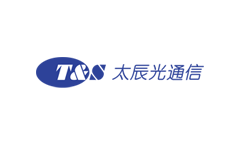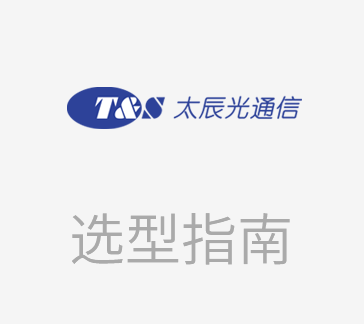Optical Transceiver Interoperability and Compatibility




Numerous network deployments have utilized countless compatible fiber optic transceivers. However, when selecting Optical Transceivers, quality, interoperability, and compatibility remain big concerns for operators and project managers. In today's crowded OEM-compatible transceiver market, making an informed decision is crucial. Will the optical Transceivers I have bought work flawlessly with my different modules? Will the modules work with my switches and be compatible? You will learn about the optical transceivers' interoperability and compatibility from this article.
How can you make sure two optical transceivers work together?
With regards to the connection between two fiber optic transceivers, the following four factors ought to be taken into consideration: speed, fiber type, and the connection to switches are all important factors.
First requirement: Identical Wavelength. In a fiber link, data travels from one end to the other. Fiber optic transceiver is in charge of converting electrical signals into optical signal. In order to carry out the process, the optical transceivers need to support the same wavelength at both ends. In particular, optical transceivers must match their wavelengths on both ends. Data transmission may suffer loss and degradation as a result of the unmatched wavelength. For instance, a 1310nm module won't go with an 850nm module. Additionally, modules' working modes ought to be matched at each end. A full-duplex transceiver ought to be paired with a full-duplex one. If a half-duplex module is connected to a full-duplex module, there will be no transmission.
Second requirement: Same Speed. You might put the same-sized transceiver in the wrong switch port or mix two modules with similar looks. The connection won't work as expected or at all in these situations. Take, for instance, 1G SFP and 10G SFP+. An SFP module that is the same size as the switch can easily fit into the SFP+ port. Although an SFP+ module can be plugged into an SFP port, the transmission speed will be limited to 1 Gbps. In contrast, an SFP module will not connect when inserted into an SFP+ port. The majority of fiber optic transceivers with different speeds cannot work together as a result. One exception is the 10GBASE-T module, which can use Cat5e/Cat6/Cat6a cables to support 1000Mbps, 2.5Gbps, 5Gbps, and 10Gbps.
Third Requirement: Selecting the appropriate fiber type. Generally speaking, the OM1, OM2, OM3, OM4, and OM5 fiber types are used for short-range transmission in multimode fiber optic cables. The connection will not be successful if one module is connected via OM1/OM2 fibers while the other module is connected via OM3/OM4.The uniform colors on the fibers' outer jackets may help identify them. The types of connectors won't be restricted if the right fiber type is used.
Fourth requirement: Correct Switch Operation. The preceding conditions have established a solid foundation for the subsequent in-field experiment. On the one hand, check to see that the compatible modules you bought have been tested on switches of the original brand. To avoid abnormal operations, for instance, a Cisco-compatible fiber optic transceiver must be tested on Cisco switches. On the other hand, make sure that the modules you want to use are supported by your devices. Because some brands' switches do not easily work with modules from other manufacturers.
How Can I Ensure Compatibility with an Optical Transceiver?
Compatibility is the most important requirement for an optical transceiver to work well with network switches. As was mentioned in the previous section, some industry manufacturers will encrypt their devices, which may make module compatibility more challenging. It is essential to select a dependable vendor with a stringent transceiver testing system in order to ensure that a third-party transceiver can function on the OEM switch.
Testing Methodology
The testing method can roughly be classified into two categories: test the modules that are half-finished and the modules that are finished. The first can be further subdivided into basic inspection of appearance (craft, accessories, packaging, etc.) and parametric tests of performance. The latter includes a variety of tests, such as high and low temperature tests, optical power tests, spectral tests, eye diagram tests, digital diagnostic function tests, and so on. The outlook of the finished modules will be checked again, and connection tests for DDM, compatibility, and connectivity will be run on them. The OEM switches will be used to test the compatible modules for compatibility. Consequently, flawless switch operation can be ensured by carrying out a series of stringent tests on compatible transceivers.
- |
- +1 赞 0
- 收藏
- 评论 0
本文由出山转载自T&S Blogs,原文标题为:Optical Transceiver Interoperability and Compatibility,本站所有转载文章系出于传递更多信息之目的,且明确注明来源,不希望被转载的媒体或个人可与我们联系,我们将立即进行删除处理。
相关推荐
Comparison of Advantages and Disadvantages Between 40G QSFP+SR4 Optical Module and QSFP+ AOC Active Optical Cable
Both 40G QSFP+SR4 optical transceivers and 40G QSFP+ AOC active optical cables are widely used in 40G data center for short-distance interconnection. Since both can realize short-distance interconnection, what is the difference between them and their advantages and disadvantages? Let‘s reveal the answer to everyone below.
What is the Difference Between AOC and Optical Transceiver?
AOC active optical cable is an optical fiber with a module attached to each end, which is equivalent to a cable and a module.AOC active optical cable is also widely used by many customers because its cost is cheaper than that of two separate modules plus one optical fiber.
Knowledge Sharing about SFP+ AOC
T&S can provide AOC and DAC cables required for the construction of large-scale data centers in 10G/40G/100G applications. The transmission media of AOC and DAC cables are different. For AOC, the signal transmits through light; for DAC, the signal transmits through electricity.
太辰光(T&S)光纤连接器选型指南
目录- 公司简介 Company profile 陶瓷插芯 Ceramic Ferrule 光纤连接器 Fiber Optic Cable Assembly 光纤元器件 Fiber Optic Components 波分复用器 WDM FBT光纤耦合器 FBT Coupler PLC分路器 PLC Splitter 光纤光栅 Fiber Bragg Grating 光纤模块、有源光缆及有源电缆 Fiber Optic Transceivers,AOC&DAC
型号- FOT-SC/APC,CG-XX/G652D/1.5M,D12F-SC/UPC/SM/∅0.9/L/L1M,SMC-P-1X2-163/15-10/90-FC/APC-1-G652D-∅3X60,FEN-SC-S4,FEN-SC-S5,MC-FC/APC-FC/UPC/SM/∅3/L,FEN-SC-S1,PM-FC/UPC(N)-FC/UPC(N)/1550/∅2/L-SA,FEN-SC-S2,FEN-SC-S3,ATIL-FC/APC/SM/05/NP/L,MPO/APC/12F-FC/UPC/SM/∅0.9-L/L1-RJ,PLC-1X8-A-09/L1-LC/UPC-09/L2-LC/UPC
TSQS-131HG10E-LC光端机单模100GBASE-LR4收发器,带诊断监控双工QSFP28 100G以太网10KM收发器
描述- 本资料介绍了TSQS-131HG10E-LC单模100GBASE-LR4收发器模块,该模块适用于符合IEEE P802.3ba标准的100Gb/s光通信应用。它将4路25Gb/s电数据转换为4路LAN WDM光信号,然后复用到单个通道进行100Gb/s的光传输。接收端相反地,将100Gb/s的光输入解复用为4路LAN WDM光信号,然后将它们转换成4路电数据输出。
型号- TSQS-131HG10E-LC
TSBR4-NCNMC3C光纤收发器400G OSFP DR4收发器,带诊断监控
描述- 本资料介绍了一种400G OSFP光收发器模块,适用于500米的光通信应用。该模块将8通道的50Gb/s电输入数据转换为4通道的并行光信号,每个通道可达到100Gb/s的运行速度,总数据率为400Gb/s。模块具有热插拔OSFP外形尺寸,支持MPO-12连接器,并具备数字诊断功能。
型号- TSBR4-NCNMC3C
Why Do 400G Optical Transceiver Prefer QSFP-DD?
Optical transceiver has developed to 400G optical transceiver, and manufacturers are stepping up research and development to seize the hot spot. Many mainstream manufacturers choose QSFP-DD as the package of 400 optical transceivers, but why do 400G optical transceivers prefer QSFP-DD? Does it mean that QSFP-DD will be the main package of 400G optical transceivers in the future?
TSBX8-NAAMA1C光收发器多模850nm 400G BASE-SR8 OSFP收发器,带诊断监控
描述- 该资料详细介绍了TSBX8-NAAMA1C型光纤OSFP收发器,适用于400Gbps SR8应用。该收发器支持多模光纤,使用850nm VCSEL激光器和PIN光电探测器,提供高达53.125 Gb/s的数据速率,支持70m的OM3光纤和100m的OM4光纤连接长度,并具备诊断监控功能。
型号- TSBT8-NAAMA1C-02,TSBT8-NAAMA1C-01,TSBN8-NAAMA1C-02,TSBN8-NAAMA1C-01,TSBX8-NAAMA1C
TSSP-85192L-SR光纤收发器850nm SFP+多模收发器,带诊断监控双工SFP+SR 300M收发器
描述- 本资料介绍了TSSP-85192L-SR型850nm SFP+多模光纤收发器。该产品符合IEEE 802.3ae标准和SFF-8431标准,支持高达11.3Gbps的数据速率,适用于10GBASE-SR和10GBASE-SW网络通信。它具备数字诊断监控功能,可在多种温度范围内工作,并符合RoHS6环保标准。
型号- TSSP-85192L-SRT,TSSP-85192L-SR,TSSP-85192L-SRC
TSBM4-NAAMA1C光收发器多模850nm 400G BASE-SR4 OSFP收发器,带诊断监控
描述- TSBM4-NAAMA1C是一款适用于400G BASE-SR4以太网应用的4通道光纤OSFP收发器。该模块支持106.25 Gb/s PAM4每通道的数据速率,可在OM3和OM4多模光纤上实现30米和50米的最大链路长度。它具备诊断监控功能,支持I2C接口,并采用单3.3V电源供电,功耗小于9W。
型号- TSBM4-NAAMA1C
What Are the 40G QSFQ+ Fiber Optical Transceivers and Their Differences?
40G networks are widely used in data centers. 40G fiber optical transceivers are the mainstream devices for interconnection between data center equipment. So what are the main types of 40G fiber optical transceivers? What are the differences between them?
Type Selection and Application of Fiber Transceiver
Although optical modules are a trend to replace fiber transceivers, there is still a relatively large user base for fiber transceivers. For example, fiber transceivers are still commonly used transmission products in monitoring systems.
TSQL4-F22LE4C光端机单模200G Base LR4收发器,带诊断监控双工QSFP56 10KM收发器
描述- 本资料介绍了一种名为TSQL4-F22LE4C的光学收发器,适用于200G BASE-LR4标准,支持单模光纤长达10公里的传输。该产品具有热插拔QSFP56接口、LC连接器,支持数字诊断功能,并适用于5G回程、交换机与路由器连接以及数据中心200GE 10Km SMF链路。
型号- TSQL4-F22LE4C
电子商城
现货市场
































































































































































































登录 | 立即注册
提交评论